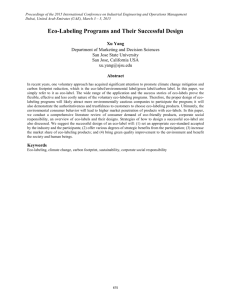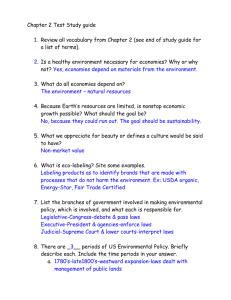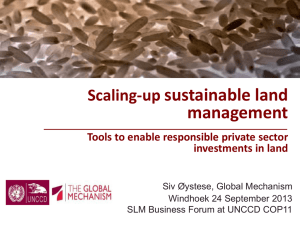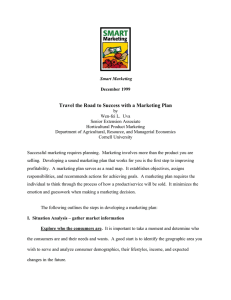Economic Analysis of Eco-labeling in the Agricultural Sector of Thailand... Faculty of Economics, University of Giessen, Germany
advertisement
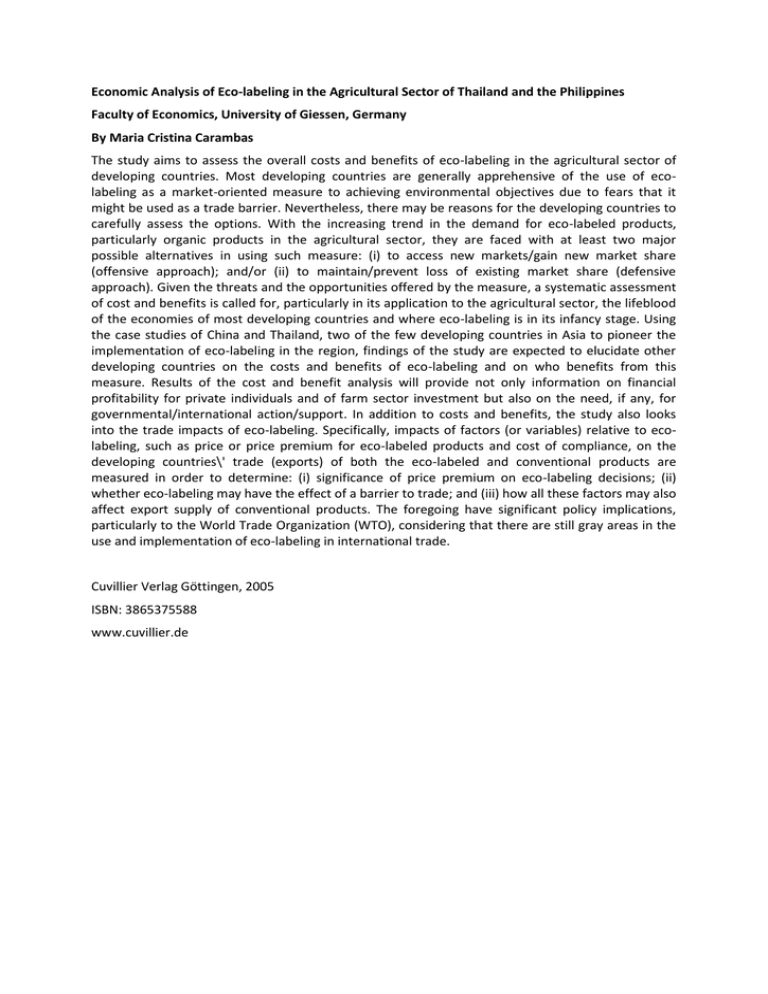
Economic Analysis of Eco-labeling in the Agricultural Sector of Thailand and the Philippines Faculty of Economics, University of Giessen, Germany By Maria Cristina Carambas The study aims to assess the overall costs and benefits of eco-labeling in the agricultural sector of developing countries. Most developing countries are generally apprehensive of the use of ecolabeling as a market-oriented measure to achieving environmental objectives due to fears that it might be used as a trade barrier. Nevertheless, there may be reasons for the developing countries to carefully assess the options. With the increasing trend in the demand for eco-labeled products, particularly organic products in the agricultural sector, they are faced with at least two major possible alternatives in using such measure: (i) to access new markets/gain new market share (offensive approach); and/or (ii) to maintain/prevent loss of existing market share (defensive approach). Given the threats and the opportunities offered by the measure, a systematic assessment of cost and benefits is called for, particularly in its application to the agricultural sector, the lifeblood of the economies of most developing countries and where eco-labeling is in its infancy stage. Using the case studies of China and Thailand, two of the few developing countries in Asia to pioneer the implementation of eco-labeling in the region, findings of the study are expected to elucidate other developing countries on the costs and benefits of eco-labeling and on who benefits from this measure. Results of the cost and benefit analysis will provide not only information on financial profitability for private individuals and of farm sector investment but also on the need, if any, for governmental/international action/support. In addition to costs and benefits, the study also looks into the trade impacts of eco-labeling. Specifically, impacts of factors (or variables) relative to ecolabeling, such as price or price premium for eco-labeled products and cost of compliance, on the developing countries\' trade (exports) of both the eco-labeled and conventional products are measured in order to determine: (i) significance of price premium on eco-labeling decisions; (ii) whether eco-labeling may have the effect of a barrier to trade; and (iii) how all these factors may also affect export supply of conventional products. The foregoing have significant policy implications, particularly to the World Trade Organization (WTO), considering that there are still gray areas in the use and implementation of eco-labeling in international trade. Cuvillier Verlag Göttingen, 2005 ISBN: 3865375588 www.cuvillier.de
